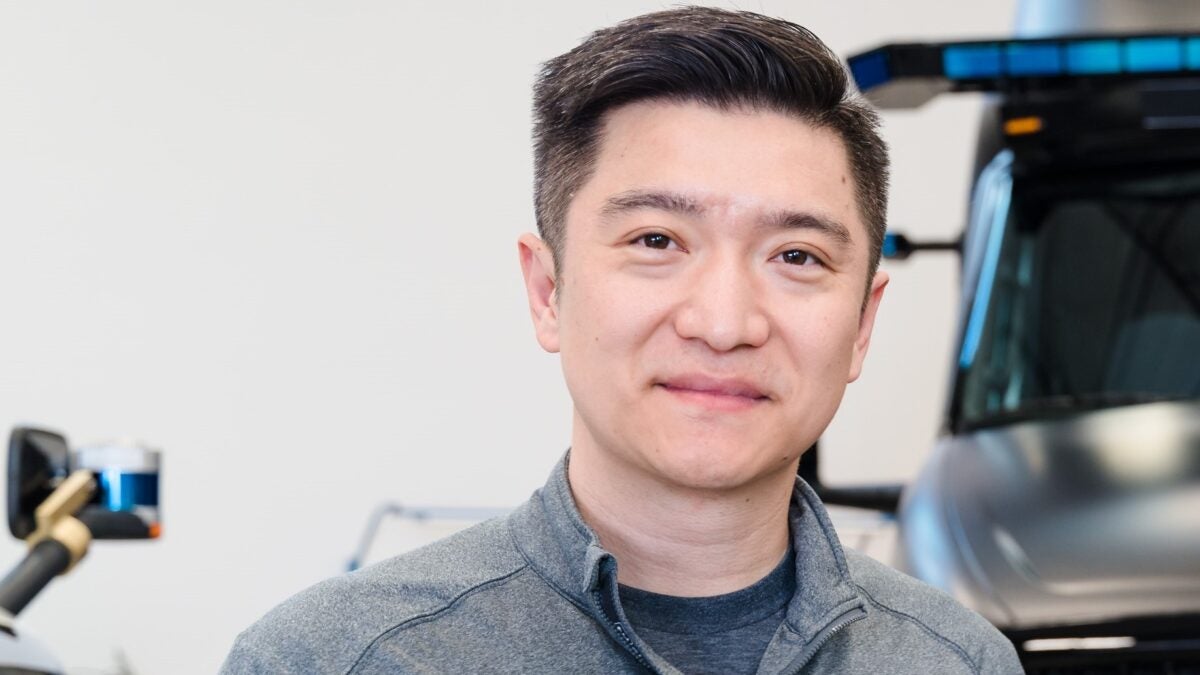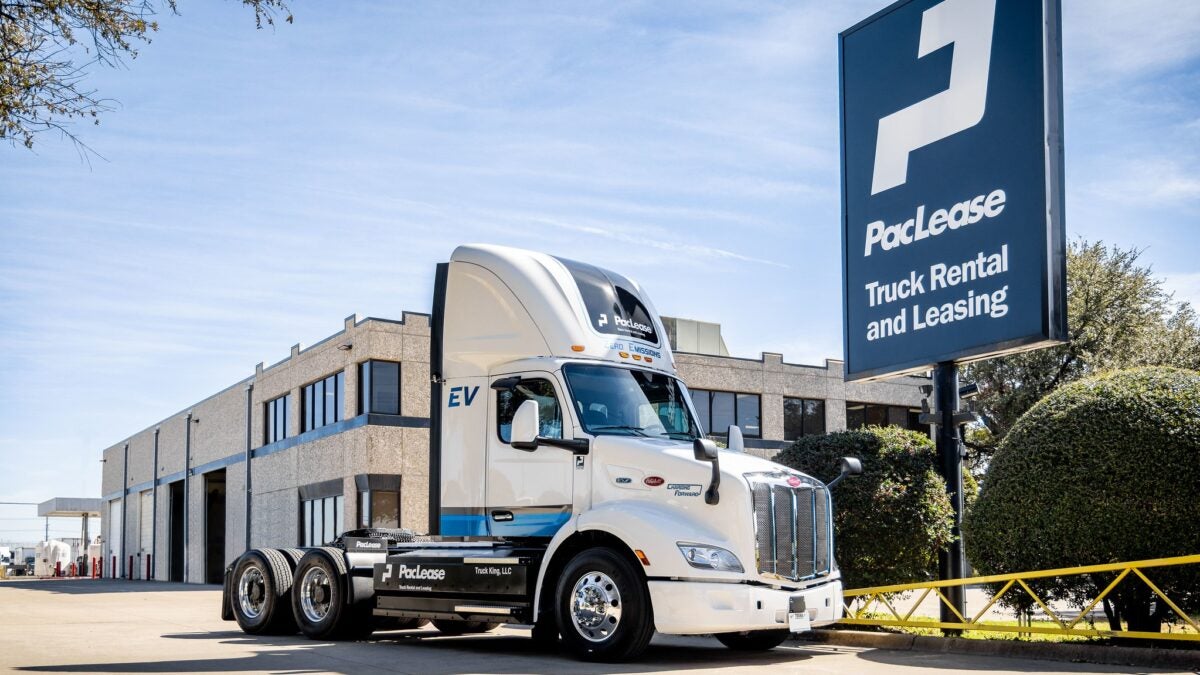Autonomous trucking is a far weightier topic than baseball, the subject of the famous “Who’s on first?” Abbott and Costello comedy classic. Determining the positions of truck makers and autonomous software developers might be more watchable than even rule-shortened games in the new MLB season.

Who really drives autonomous truck development?
After three stories and more than 3,000 words on TuSimple this week here, here and here, you might think there was nothing else to write.
Maybe it’s because TuSimple lost Navistar as its manufacturing partner to develop a ground-up autonomous truck. But CEO Cheng Lu now sees a traditional manufacturer-supplier relationship between truck manufacturers and autonomous software developers. Truck makers, he says, are in the driver’s seat.
Think about it. Without a truck on which to install a sensor suite and a computer brain to ultimately replace a human driver, would autonomous trucks even exist?
“Our mission is to automate the freight lanes,” Lu told me earlier this month in the first interview he’s given since returning as CEO in November. “We’re not here to build an autonomous truck. We’re enabling the OEMs to build an autonomous truck.”

Would it be easier to have a relationship where TuSimple could influence how these trucks are designed and engineered? Of course.
Waymo Via, currently on hiatus because of staff cuts, provided a lot of input to Daimler Truck North America in terms of what it needed to make its Waymo Driver work best on a purpose-built Freightliner Cascadia. So has Daimler’s independent autonomous software developer Torc Robotics.
Will TuSimple go it alone?
Few speak more about the value of the software developer and truck maker working together than Aurora Innovation, which has partnerships with Paccar Inc. and Volvo Trucks.
“A truck, in most people’s minds, should last 1 million miles,” Lu said. “But to get there, you need to have production-grade everything. If you automate a lane, [and] the truck only runs 300,000 miles, it still pays back its cost. But maybe it’s using some of the newer prototype sensors and stuff that maybe are not reliable up to a million miles.”
TuSimple is looking to replace Navistar, but it’s willing to go it alone on autonomy — at least for its first commercial lane between Tucson, Arizona, and Phoenix. Remember, TuSimple plied this route with no driver back in December 2021. The goal to go commercial is 2024.
“It’s important to have OEM partners,” Lu said. “Because ultimately if you want to have trucks that can be sold to a third party, it’s got to have warranties. It’s got to have an aftermarket sales network. It has to be validated by not only us, but by our partners and the OEM as well.”
That describes an autonomous truck at scale, something several years if not decades away.
“Today, based on what we know of automating freight lanes, we are in control of our own destiny because these are base vehicles we have [upfit] ourselves. This is no different than what Waymo is doing with robotaxis. You have a base vehicle. You retrofit it. That can still get us to a commercial launch and a commercialized business.”
Electric trucks go to the leases
In another sign that electric trucks are gaining traction, the leasing arms of two legacy manufacturers are putting the battery-powered trucks in the hands of lease customers, not just fleet owners.
In the biggest such move, Velocity Truck Rental and Leasing is adding 125 Class 8 Freightliner eCascadia’s and 75 Class 6 & 7 Freightliner eM2s from Daimler Truck North America to its commercial truck rental and full-service truck leasing business.
Velocity is installing 39 dual-port 150-kilowatt chargers near transit corridors in Southern California, addressing the where-do-I-charge-this-thing question. Arrowlink Logistics gets the first five eCascadias to support pickups and deliveries at the ports of Los Angeles and Long Beach. The rest of the trucks hit the road by 2025.
PacLease on Monday handed off two Peterbilt Model 579 EV daycabs to Truck King, a Dallas-area trucking company. They will be used for local line-haul operations covering about 100 miles round trip. Truck King operates a mix of 65 flatbed and box trucks in the Dallas-Fort Worth metroplex.

In December, Volvo Trucks North America delivered seven Volvo VNR Electric trucks to Ryder System Inc. to support local supply chain routes servicing Volvo Group’s truck assembly operations in Pennsylvania. Volvo is making it clear to suppliers that if they want to deliver to Volvo Group plants in the U.S., they better purchase the Class 8 battery-electric daycab.
Briefly noted
New Jersey incentives for Xos
Xos Inc. has been selected as an approved manufacturer for the New Jersey Zero-Emission Incentive Program. That means buyers of Xos electric stepvans can get up to $90,000 to offset the purchase of the trucks.
Nikola adds hydrogen partners
Two bits of hydrogen news for Nikola Corp. The electric truck and hydrogen fuel maker plans to collaborate with Canada’s Klean Energy to develop green hydrogen supply and dispensing infrastructure in the United States and Canada. Nikola is going to get liquid hydrogen storage tanks and transport trailers from Chart Industries for mobile and modular hydrogen refueling stations. The two also will work on advancing hydrogen technology for infrastructure and truck onboard fuel systems. So far, Nikola is working only with gaseous hydrogen for mobile refuelers.
Electric charging near U.S.-Mexico border
San Diego Gas & Electric is installing four direct current (DC) fast chargers near the busiest port of entry into California from Mexico. The chargers at Truck Net near the Otay Mesa Port of Entry each pack a 250kW charging capacity. That means a typical medium-duty box truck could go from a 20% state of charge to 80% in about an hour. From empty to full takes about two hours.
Siemens and Daimler collaborate on digital platform
Siemens Digital Industries Software and Daimler Truck AG are collaborating on a state-of-the-art digital engineering platform. The companies said the new platform will enable Daimler Truck to explore commercial vehicle innovation while making product development and life-cycle management of trucks and buses more efficient. It will be rolled out globally across Daimler Truck engineering hubs, brands and business segments.

Daimler plant marks 750,000th truck
Daimler Truck North America’s plant in Mount Holly, North Carolina, is commemorating production of the 750,000th vehicle built there. Penske Truck Leasing took delivery of the milestone vehicle on Monday — a Class 6 Freightliner M2 106 Plus. DTNA’s Cleveland, North Carolina, plant marked the 750,000th Freightliner Cascadia built there in July 2020. That one went to UPS.
Former Cummins president joins Hyliion board
Hyliion Holdings has three new board members replacing two who stepped down, including former Transportation Secretary Elaine Chao. One of the replacements brings expertise and knowledge of Cummins to the startup. Richard Freeland is the former president and chief operating officer at Cummins, which is partnering with Hyliion to certify the Cummins 12-liter natural gas engine for Hyliion’s Hypertruck ERX. Former McKinsey consultant Rodger Boehm and former Rowan Cos. Executive Vice President Melanie Montague Trent join Freeland.
Volvo marks 25th certified electric service dealership
TEC Equipment’s outlet in Portland, Oregon, is the first of Volvo Trucks North America’s heavy-truck dealerships in the state — and the 25th overall — to be certified to sell and service regional Volvo VNR Electrics and Mack LR heavy electric refuse vehicles.
Paccar invests in Platform Science
Paccar Inc. is making a minority equity investment in Platform Science as part of a partnership recently launched to integrate Platform Science’s Virtual Vehicle technology with the Paccar Connect telematics system. The amount was not disclosed.
Click here to get Truck Tech via email on Fridays and tune in to Truck Tech on FreightWavesTV at 4 p.m. EDT on Wednesdays.










